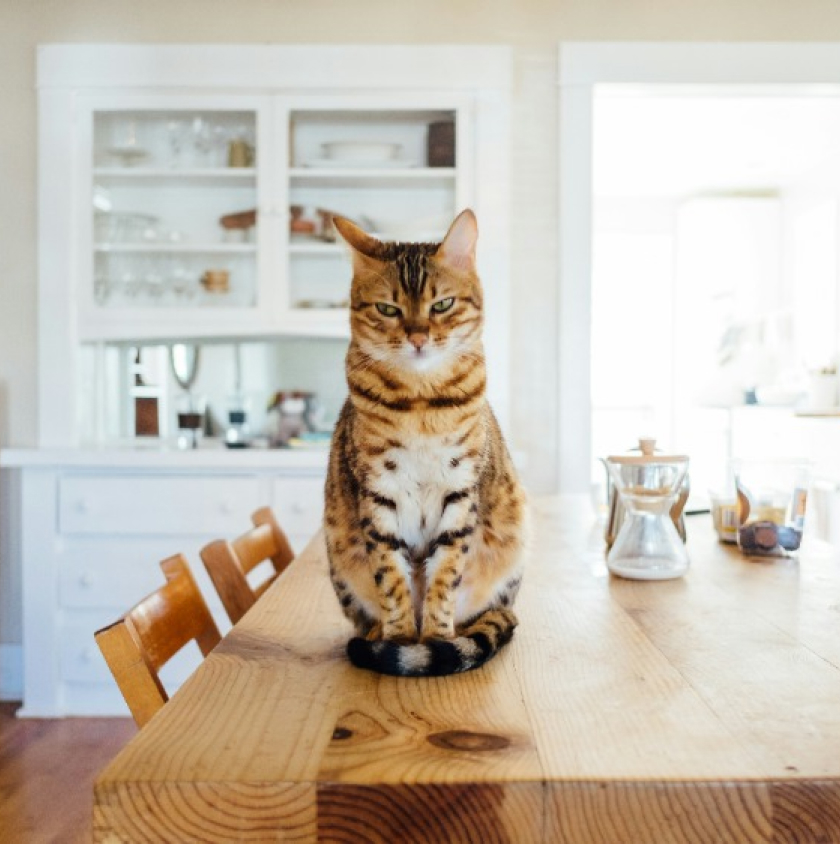
Pet Insurance
Compare Pet Insurance Quotes
- Compare up to 25 pet insurers
- You could pay from £3.35 per month*
- Find the best deals today

Search and compare quotes from up to 25 UK pet insurers, including;
Why Use SimplyQuote.co.uk To Compare Pet Insurance Quotes
Finding the right pet insurance policy with so many different options out there can be really overwhelming.
SimplyQuote, in partnership with QuoteZone, enables you to compare insurance quotes from leading UK insurance providers, helping you find the best deal to suit your needs within minutes.
We’re completely independent, working to help you find the right insurance for your pet.

Why Do You Need Pet Insurance?
The main reason to consider pet insurance is for the financial support it provides if your animal is ill or injured. Veterinary costs can be high, and insurance will help you pay for the care your companion animal needs without dipping into your hard-earned savings.
Insurance also gives you peace of mind. You can relax and enjoy spending time with your pet, knowing that you’re prepared should anything happen.
You’ll also receive access to a network of veterinarians. So, if you have a specific vet you want to consult, you can be sure that your pet insurance policy will cover appointments.
How Does Pet Insurance Work?
Most insurance policies work the same – even when it comes to insuring animals!
You pay a monthly or annual premium, and your pet is insured for a certain amount of money. The exact cover your pet receives will depend on the policy you select.
Pet insurance policies usually have a deductible – the amount of money you have to pay out of pocket before the insurance kicks in.
For example, if your policy has a £500 deductible and your bill is £700, you have to pay £500 and the insurance will cover the remaining £200.
What Types Of Pet Insurance Policies Are Available?
Here are the most common types of pet insurance policies:
Lifetime
Lifetime pet insurance policies insure your pet for its entire lifetime, no matter how long it lives. You’ll never have to worry about the cost of vet bills. This comprehensive pet insurance covers almost all illnesses and incidents, including cancer and accidents.
Time-limited
Policies with a time limit will only cover your pet for a set number of years. Once the time limit expires, your pet is no longer covered. For example, if you take out a three-year policy, and your pet gets sick after five years, you won’t be financially covered.
Accident-only
Accident-only pet insurance only covers the cost of accidents, not illnesses. So, for example, if your cat is hit by a car and injured, insurance will cover unexpected vet bills. But, if your cat develops feline leukaemia, your insurance will not pay for treatment.
Maximum benefit
Maximum benefit policies limit how much money will be paid out over a pet’s lifetime. That means that, for example, if your max benefit is £10,000 and your pet requires treatment exceeding that amount, you’ll have to pay the rest out of pocket.
Looking for pet insurance? Get your quote today!
Get Quotes
What Does Pet Insurance Cover?
Most pet insurance cover providers offer policies that include the following:
Third-party liability cover (dogs only)
This kind of dog insurance will cover you if your dog injures a third party or damages their property.
For example, if your dog bites someone on the hand, the insurance will cover the person’s medical treatment. If your dog gets out and jumps up against your neighbour’s car, scratching it – your insurance will pay to fix the scratch marks.
Alternative therapies
This covers alternative veterinary treatments, like acupuncture, hydrotherapy or physical therapy.
Euthanasia
Euthanasia is almost always a part of pet ownership. Old animals or those with terminal illnesses will have to be put to sleep at some point, and your insurance will cover the cost of the procedure.
Cost of diagnosing illnesses
If your animal is sick and needs diagnostic tests, these tests will be covered by your pet insurance. Whether it is scans, x-rays or bloodwork, you’ll be financially sorted.
Advertising expenses for lost pets
Having a lost pet can be a horrible experience. This policy will cover any expenses incurred while you advertise your lost animal, like posting online or printing flyers to distribute around town.
Boarding fees
It will cover the cost if you have to put your dog in the kennels or cat in the cattery if you need to go away for an emergency, like medical treatment.
Overseas travel cover
This policy will cover your pets if you take them abroad with you. It typically covers the replacement of pet travel documents, quarantine costs, and any emergency expenses.
What Is Not Covered By Pet Insurance?
Your pet insurance policy is unlikely to cover the following:
Pre-existing conditions
Most pet insurance policies won’t cover pre-existing conditions. That means if your pet already has a disease or disability when you take out the policy, it won’t help pay for related vet bills.
Neutering or spaying
Policies commonly don’t cover neutering or spaying (removing the animal’s reproductive organs). You’ll have to pay for this out of pocket.
Pregnancy
When your female pet becomes pregnant, insurance won’t cover the cost of any pregnancy-related treatments or veterinary assistance during birth. That’s because it is considered an elective procedure.
Dental treatment
Sometimes your companion will need to have its teeth cleaned, extracted, or just a standard dental check. However, most pet insurance providers won’t cover these procedures.
Cremation and burial costs
When a pet passes away or is euthanised, you may want to have them cremated or buried. Unfortunately, you’ll have to pay for these services yourself.
Routine vet checkups, preventative treatment, vaccinations
Routine vet checks and vaccinations are crucial for keeping your pet healthy.
However, most policies don’t cover the cost of routine vet checkups as they are considered elective procedures. The same goes for any preventative treatment (like deworming or flea and tick treatment) or vaccinations.
Interestingly, some insurers will insist that your pet’s vaccinations are up to date before covering them.

What Are Some Common Pet Insurance Cover Options?
At SimplyQuote, we understand everyone has different animals, making it confusing to know which product to choose. Here are the most common products:
Dog insurance
There are lots of different dog insurance policies available since dogs are such common pets.
There are different policies available for different breeds since some are more prone to getting sick or having problems than others. Insurance policies will also depend on the age of the dog, as older dogs will have higher premiums.
Cat insurance
Since cats are also very common, low-maintenance pets, insurance providers have several different cat insurance policies available.
Again, the policy cover will depend on the cat breed. For example, Siamese cats are more likely to develop genetic diseases than Maine Coons.
Rabbit insurance
Rabbits are common apartment pets because of how easy they are to care for.
The cost of rabbit insurance will depend on its age and breed.
Horse insurance
The horse insurance policy will depend on the age, breed, and use of the horse. Working horses or horses used in eventing will be more expensive to insure as they’re a higher risk to the insurance provider.
Some insurance policies may cover horse theft, tack, and other property associated with the horse.
Looking for pet insurance? Get your quote today!
Get QuotesHow Much Does Pet Insurance Cost?
Here are some average pet insurance starting costs, per animal type. Remember the factors above will influence the costs.
| Animal Type | Insurance Type | Monthly Cost | Annual Cost |
|---|---|---|---|
| Dogs (per month minimum) | Accident only | £5 | – |
| Time-limited | £9.30 | – | |
| Maximum benefit | £10.90 | – | |
| Lifetime | £11.10 | – | |
| Dogs (By Breed) | Crossbreed | £22.67 | – |
| Cocker Spaniel | £22.72 | – | |
| Golden Retriever | £24.30 | – | |
| German Shepherd | £38.15 | – | |
| English Bulldog | £66.50 | – | |
| Cats | – | £10.10 | £121 |
| Rabbits | – | £10-£16 | £108-277 |
| Horses | – | £25 | £200-£500 |

How Can I Reduce The Cost Of Pet Insurance?
Here are some ways in which you can get cheaper pet insurance.
Consider multi-pet insurance policies
If you have more than one pet, you might be able to save money on your insurance policy by getting one that covers multiple pets. For example, if you have more than one dog, you can insure both dogs under the same policy, instead of having to take out insurance for each dog.
Increase your excess
By increasing your excess (the amount you’ll pay out of pocket when you make a claim), you’ll reduce your premium. Just make sure you’re able to afford the excess when the time comes to make a claim!
Compare pet insurance
You need to compare different pet insurance policies before buying to ensure you’re getting the best deal for your animals’ needs and your budget.
By using a pet insurance comparison tool, you can compare premiums, deductibles, co-pays, and cover limits.
Also, make sure to ask the insurance provider if they offer any discounts for multiple pets or if you buy lifetime pet insurance.
Pay your policy upfront
Paying your policy upfront – or annually – is cheaper than paying in monthly instalments. That’s because most insurance companies will charge interest on monthly premiums. By paying annually, you’ll avoid this additional cost.
Stay up to date with vaccinations
Most insurance providers insist that a pet is up-to-date with vaccinations before providing cover. Vaccines prevent common illnesses, so a vaccinated animal is less risky to insure.
Not only will your premiums be lower, but you might even be offered additional discounts if your pet is vaccinated.
Keep your pet healthy
The best way to keep insurance costs down is to keep your pet healthy. Stay up to date with vaccines, exercise them regularly, feed them a balanced diet, and take them for annual vet checkups.
If your pet remains healthy, your vet bills will be few and far between, decreasing your need for pet insurance.
*Price per month for cover based on a dog, Oliver, one year old, no known medical conditions and up-to-date vaccinations. Based on quote data provided by Seopa Ltd during June 2025. The quote price you could achieve is dependent on your individual circumstances.
Which Factors Determine Pet Insurance Costs?
Knowing how pet insurance premiums are calculated will help you determine whether or not they are fair. Here are the main factors that influence the cost of your insurance policy.
Policy type
The type of policy you choose will affect how much you pay. It is important that you not only use pet insurance comparison service to compare quotes but also to make sure you find an affordable policy that ticks all the boxes.
Usually, the more cover a policy provides, the higher the premium. You, therefore, need to consider whether you can afford the premium versus if you can pay out of pocket for the treatment if you don’t have insurance.
Shop around, compare pet insurance policies, and only then decide on one that meets your needs.
Type of pet and breed
The type of animal you have (e.g. dog, cat, horse) and its breed will affect the cost of a policy. Pets that are considered high risk – like some types of aggressive dog breeds, or cat breeds known to get sick more easily – will cost more to insure.
Also, remember that some insurance providers won’t offer policies for certain animal types, like birds or reptiles.
Your pet’s age
Young pets are cheaper to insure as they’re less likely to develop health problems.
It is also important to note that most insurance companies have age caps for cover, so always check this first before purchasing a policy, especially if you have an older pet.
Pre-existing medical conditions
Pets with pre-existing medical conditions will either not be covered, or will have much higher insurance costs. Always check with the insurer whether they offer any exclusions for specific conditions.
Previous claims
If you’ve claimed from your insurance a couple of times, your premiums are likely to go up.
How To Compare Pet Insurance Quotes at SimplyQuote.co.uk?
You’ll need to provide the following to get a quote:
- Your pet’s type, breed and age
- The name of your pet
- Your contact information
- Your pet’s medical history
- How much you paid for your pet
- The type and level of coverage you need
- Your deductible
- Your preferred payment method
Once you have provided all this information, the comparison system can quickly provide you with insurance quotes online.
Frequently Asked Questions
Yes, most pet insurance companies will offer multi-pet insurance which allows you to insure more than one pet under a single policy. This is often a cost-friendly alternative to taking out individual policies for each animal.
There is no single answer because the right limit will depend on the type of pet you have, its age, and your budget. However, some pet insurance companies offer policies with a maximum benefit of £10,000 per year.
No, unlike some other types of insurance, pet insurance is not a legal requirement in the UK. However, any pet insurance expert will tell you that it is always a good idea in case of an accidental injury or if your pet needs medical treatment. Your loving companion will be able to get the best care without you having to worry about the costs.
Yes, most pet insurance plans have a waiting period ranging from two to four weeks before they start paying for claims. The insurer wants to make sure you’re not seeking cover for a pre-existing medical condition.
Purebred animals have higher value and are more likely to be stolen, making them more expensive to insure. They also tend to be more vulnerable to genetic diseases. If you want cheap pet insurance, it is best to get a crossbreed.
Yes, since vet bills vary across different regions of the UK, your costs will differ based on where you live. For example, vet fees in London are much higher than in rural areas.
